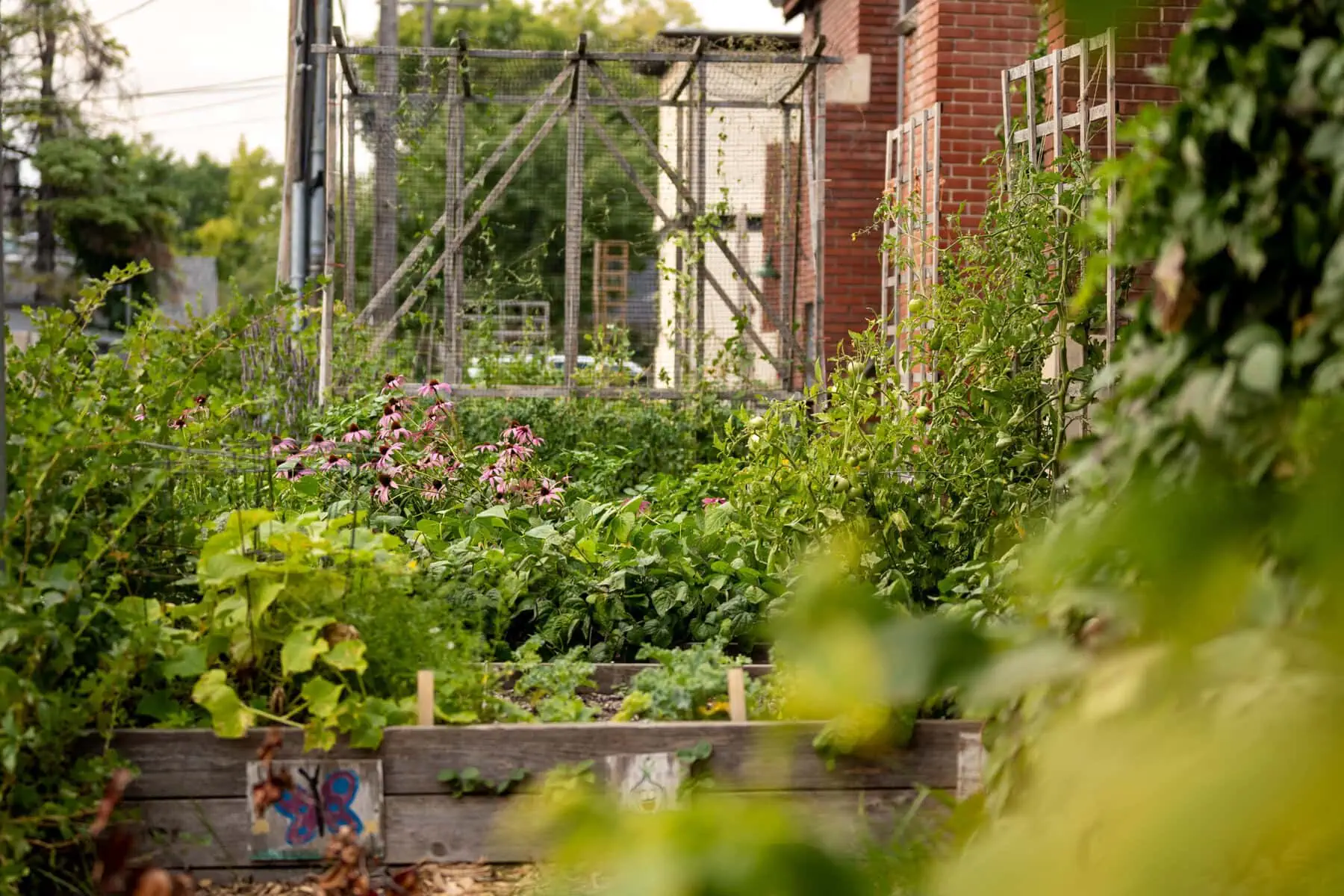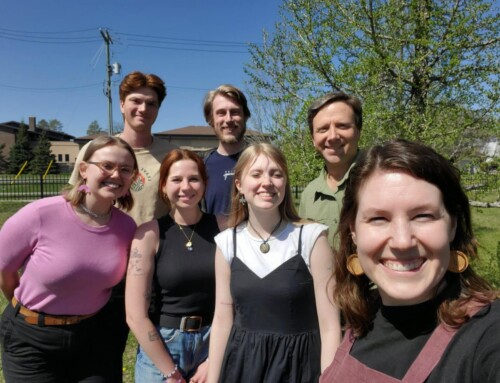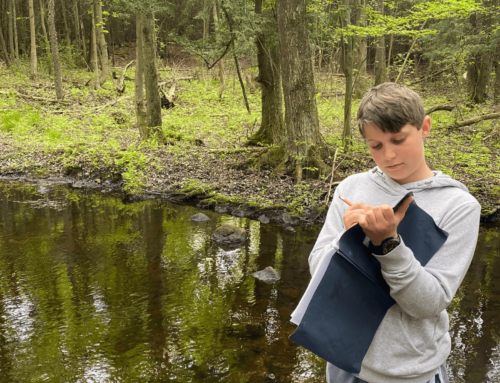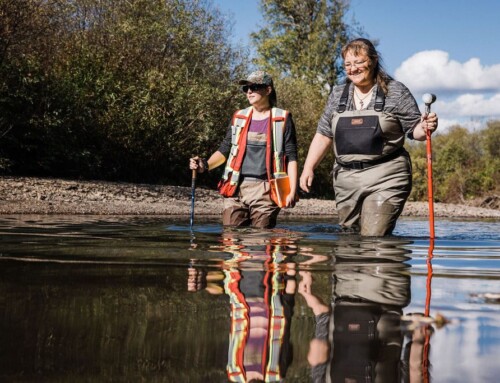Blog article from https://arocha.ca/
Growing Good Food: A WildRoots Summer Worker Story
Growing Good Food: A WildRoots Summer Worker Story
Sophia tells the story of her journey from med school to urban agriculture
By Sophia Sacco, WildRoots Summer Worker (Manitoba)
June 5, 2025
“A Medical Wonderland”: That was the phrase I used to explain to my healthcare team about the status of my health. After a long and draining battle with many diagnoses that left me tied to my bed for my entire teenage life, I found myself pursuing a career in medicine.
For three years, I immersed myself in the pre-medical world at the University of Manitoba. I studied for the MCAT and became the head of the Pre-Medical community at the university, helping students with opportunities to accomplish their dreams. I was convinced that this path was my future. So, how did I end up here, as one of the summer 2025 Urban Agriculture Coordinators for A Rocha in Manitoba?
 After a long and challenging year academically and personally, I needed a change. I had been disappointed by my time working in healthcare, and medicine no longer felt like the right path for me. As someone with a number of food allergies, I decided to change my direction to focus on food, agriculture, and nutrition. I transferred into the Faculty of Agriculture and Food Sciences to complete my degree in Human Nutritional Sciences. While there, I discovered that medicine was not the only way to help others. I began learning more about how food can heal and how food and agriculture impact many aspects of our lives.
After a long and challenging year academically and personally, I needed a change. I had been disappointed by my time working in healthcare, and medicine no longer felt like the right path for me. As someone with a number of food allergies, I decided to change my direction to focus on food, agriculture, and nutrition. I transferred into the Faculty of Agriculture and Food Sciences to complete my degree in Human Nutritional Sciences. While there, I discovered that medicine was not the only way to help others. I began learning more about how food can heal and how food and agriculture impact many aspects of our lives.
As someone with multiple health issues associated with food and allergies, I experienced an interesting form of food insecurity. Never knowing if a store, especially rural stores, had gluten-free, dairy-free, and/or grain-free products has been a challenge. Luckily many more stores are aware of allergies and sensitivities these days, and alternative options are a lot easier to find. Urban and local farms are a lot more accessible, and they are striving to create more food options for people. Yet many people in Manitoba still experience household food insecurity. Food insecurity is the inability to access food due to financial constraints, availability, or safe access. From 2021 to 2024, grocery prices have risen a staggering 22%, one of Canada’s highest increases in food inflation. This increase has left 1 in 4 Manitobans facing difficulty accessing healthy food.
During my degree, I have explored the impacts of food insecurity and the significance of Indigenous food sovereignty globally and locally, a movement that aims to end food insecurity. It focuses on the deep underlying issues that impact Indigenous Peoples and Communities. These issues include how Indigenous Peoples and Communities can meet their needs for healthy and culturally adapted food in Canada. I was discouraged to hear about the state of food insecurity in Manitoba. While I have been extremely fortunate to have the opportunity to further my education, this a chance not everyone gets. So I decided to put my education to good use and explore the topics of urban agriculture and architecture further. I hope to learn how to plan and change our cities and our future communities keeping food security, food sovereignty, and urban agriculture in mind.
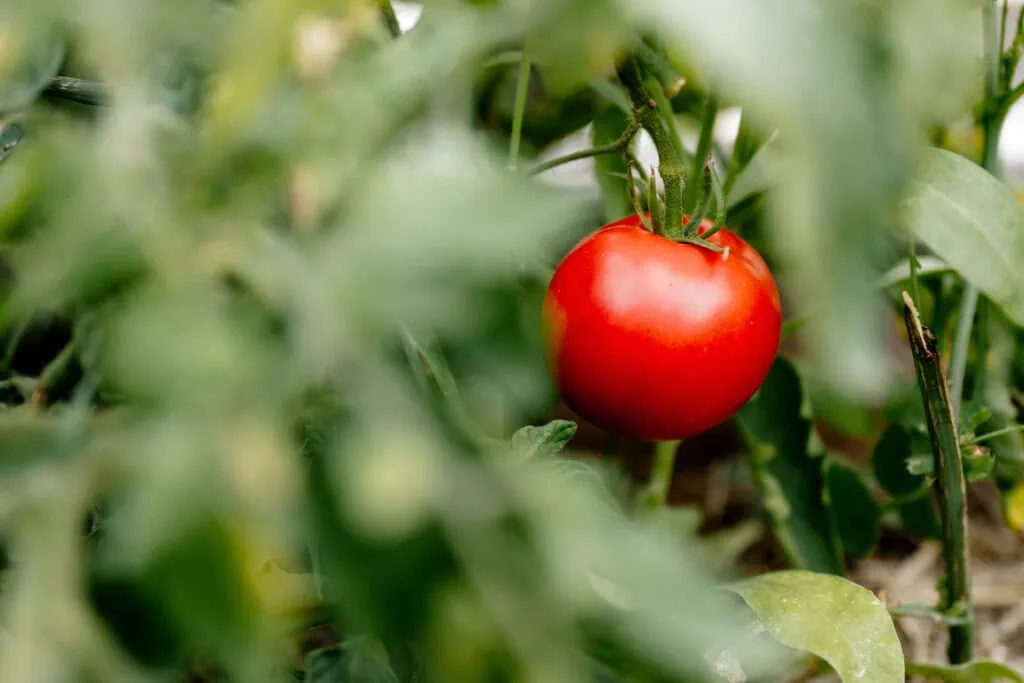 Food has the power to bring communities together. Through growing, cooking, and sharing, everyone should be able to experience this togetherness. I’m grateful to be able to experience this through working in the Just Growing Garden located at St. Margaret’s church this summer. The food grown in the garden is donated to community organizations in need, like Acorn Family Place, an organization that helps families that need a helping hand. By hosting cooking classes, they share knowledge and joy about food.
Food has the power to bring communities together. Through growing, cooking, and sharing, everyone should be able to experience this togetherness. I’m grateful to be able to experience this through working in the Just Growing Garden located at St. Margaret’s church this summer. The food grown in the garden is donated to community organizations in need, like Acorn Family Place, an organization that helps families that need a helping hand. By hosting cooking classes, they share knowledge and joy about food.
The hands-on instruction from A Rocha on planning, maintaining, and harvesting a garden bed has given me lifelong skills and helped me become more independent. Community gardens provide a variety of benefits to the overall health and structure of the community and its members. Gardens give the members access to quality-grown produce while being able to educate others on the importance of nutrition, food, and community togetherness. It helps enhance the community relationships and supports its members. Forming relationships with the community is rewarding, as I love meeting new people.
Being involved with Metanoia Farmer’s Cooperative on campus at CMU during my position at A Rocha, has also been a fun and exciting experience. I am learning something new everyday! At the end of a work day on the farm or at the community gardens, I find myself more grounded, grateful, and energized. I am able to take the knowledge A Rocha has given me and apply it to the other parts of my life, whether that be my own garden or my academic research.
I have a new understanding of how vital community gardens, food security organizations and urban agricultural programs are for all cities. I hope that in the future I will be able to be a part of the change in food security and sovereignty policies, community design, planning and implementation. A Rocha and my positions in the Faculties of Agriculture and Architecture allow me to expand my knowledge, help others and positively impact the community that has supported me.
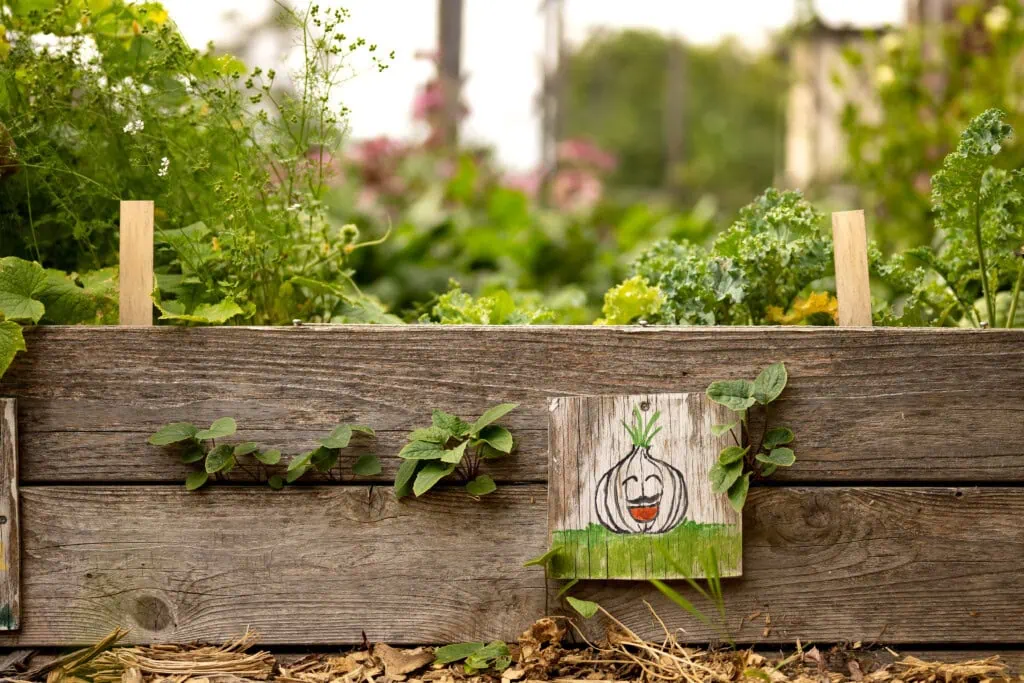
Photos by Kristen McLean
Feed Families in Need
The work we do in the garden is made possible by people like you. A gift of $67 will support one vegetable harvest delivered to families in need.
Zoe Matties2025-06-05T10:05:56-07:00June 5th, 2025|
Related Posts
-
Introducing the Manitoba Summer Staff Team of 2025
May 7th, 2025
-
Four Reasons Why Churches are Vital to the Work of Caring for Creation
April 7th, 2025
-
Building Ecological Literacy Skills Sparks Love for Creation
March 19th, 2025
-
A Bespoke Bird Book
March 5th, 2025
-
An Aha Moment at Team Gathering 2025
March 3rd, 2025

